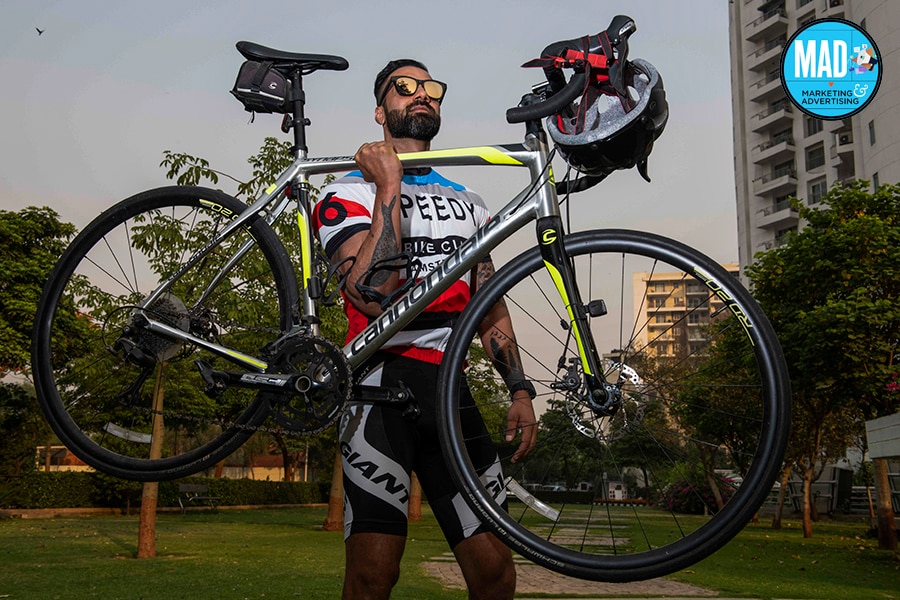Bicycle thieves: The surprising growth engine for Toffee Insurance
A staggering 60 percent of the insurtech startup's products are sold against cycle theft, a rising menace in the country—followed by those for backpacks and dengue


 Rohan Kumar, co-founder and CEO of Toffee Insurance
Rohan Kumar, co-founder and CEO of Toffee Insurance
Image: : Amit VermaSoft-pedalling any issue, reckons Rohan Kumar, doesn’t work. And when the numbers depict a shocking story, it’s prudent to step on the pedal. Take, for instance, the latest report by German insurance company Coya. Strasbourg in France tops the bicycle theft chart, followed by Copenhagen in Denmark and Hangzhou in China. “It’s a serious global menace,” says Kumar, co-founder and CEO of Toffee Insurance, an insurtech startup that provides niche insurance products such as cover for cycle theft and damages, daily commute insurance, dengue and backpack insurance. Riding a cycle might be child’s play, says Kumar, but taking it lightly can burn a hole in your pocket. This is what bicycle-sharing startups in China realised when some of them closed down due to alarming level of thefts.
Back in India, though there is no official data for cycle thefts across cities, Kumar reckons the numbers are high. The reason: About 60 percent of insurance products sold by Toffee Insurance are against cycle theft. Such a high percentage, in a little under two years, is staggering. Toffee’s second biggest insurance product is for backpacks, and third on the pecking order is cover for dengue. The cycle is driving growth for Toffee, which was started in July 2017, and has been selling this insurance cover through its network of over 1,000 cycle dealers across 120 cities.
The Gurugram-headquartered startup now plans to step on the pedal. The plan is to reach out to police stations across smaller towns across India, and sensitise consumers who have lost their cycles. “The size of the bicycle market in India is pegged at 16.3 million units,” says Kumar. The problem, he explains, is simple. Though people took their cycling seriously, buying insurance never crossed their minds.
The second problem was even more unique. Registering a complaint against cycle theft was perceived to be frivolous, and the ones who did were ridiculed. “It’s not a joke,” says Kumar. Over 98 percent of bicycles in India are priced below Rs 8,000 and are mostly used for commuting. A paltry 30,000 units are premium cycles. “An insurance premium as low as Rs 180 per year protects your cycle against theft and damage,” he says. About 20 million bicycles, he adds, are less than two years old.
Toffee raised $1.5 million in a seed funding round, led by Kalaari Capital, Omidyar Network and Accion Venture Lab, last May. It is also planning to dig deeper into data from the National Crime Records Bureau (NCRB) to find out cities and towns where cycle theft is rampant. The idea, explains Kumar, is to roll out an extensive on-ground campaign across such places to sensitise people and spread awareness about the need to get an insurance for cycle. So far, the startup’s distribution strategy to sell cycle cover was focused on point-of-sale at the retailer level. A lot of engagement programmes, both for the sellers and buyers, were devised with a targeted approach. “It helped the brand build trust,” avers Kumar.
Pedal pushers
Trust, interestingly, turned out to be the biggest problem for Toffee early in its life. And it was primarily for two reasons. Firstly, the concept of buying insurance for cycle was new. Similar to buying insurance while booking flight tickets, it was an exception, not the rule. Secondly, the mistrust generated due to poor consumer experience related to insurance in other fields: Claim settlement processes are usually long and stressful. Buyers were incredulous, says Kumar.
Then, the name itself—Toffee—made it hard for people to take seriously. “What is Toffee? Is it a local or an international brand? These were some of the routine volleys the brand had to face,” he adds.
Toffee, say marketing experts, has smartly created a niche by focusing on unmet needs of consumers. For any new insurance player, especially a startup, the best chance against the biggies is differentiated positioning. “Toffee scores high on both counts: Name and offering,” says Ashita Aggarwal, marketing professor at SP Jain Institute of Management and Research. When the big—desi as well as foreign players—were trying to sell life and medical insurance to Indians, Toffee tapped into a demand which was latent, but not there for taking as the lowest hanging fruit. “Making people opt for cover for cycle, backpack or dengue is sheer innovation,” she says.
The cycle cover also comes at a time when the premium cycle market is about to take off in India. Even bicycle-sharing startups are warming up to the Indian market. “The headroom for growth is immense. The road to travel is endless,” she adds.
Kumar says their foot will remain on the pedal. The target is to take pocket-sized insurance products to the masses, and make them pocket-friendly. Toffee hopes to make the concepts of risk mitigation and financial security accessible to all. For example, Kumar says, if a labourer is working at a construction site in the city and sending money home to her family, Toffee can offer her insurance to protect her salary in case of hospitalisation. “We’re working with money remittance outlets to offer salary protection plans for precisely this reason,” he says. The cycle, Kumar adds, is just the beginning of a journey. “Toffee has just hit the road,” he says.
First Published: May 20, 2019, 15:47
Subscribe Now